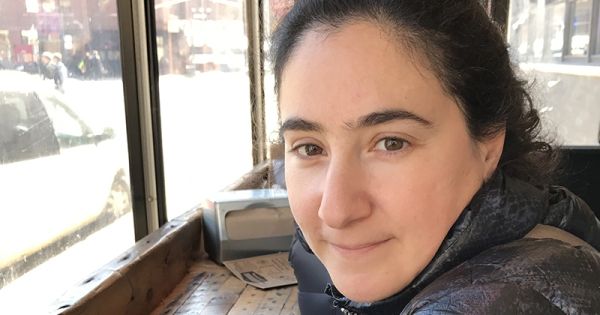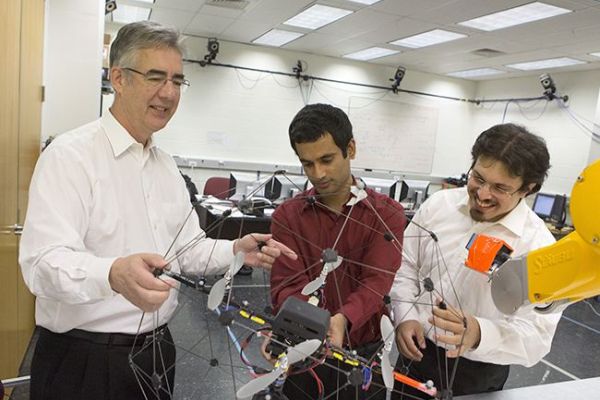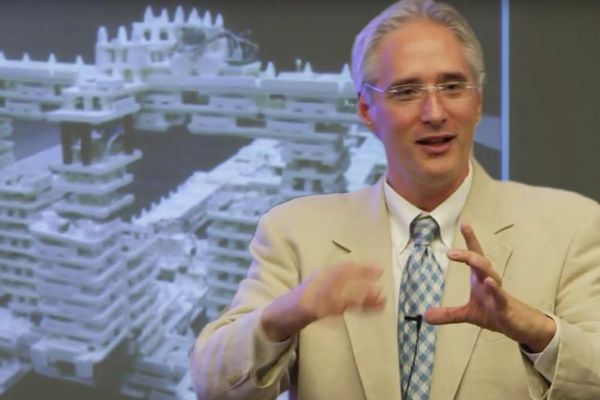Visiting Faculty Fellows Mini-Courses
IRIM’s Visiting Faculty Fellows program supports extended visits (one to six months) to the Georgia Tech Atlanta campus by faculty members from other institutions or industry/government laboratories who are engaged in research activities focusing on robotics. IRIM provides Visiting Fellows with partial salary support, along with support for travel and living expenses. Visiting Fellows interact with IRIM faculty and students and teach a minicourse on their current research during their stay at Georgia Tech.

Computer Vision: Looking Back to Look Forward
Svetlana Lazebnik
Associate Professor
Department of Computer Science
University of Illinois at Urbana-Champaign
These days, established computer vision professors are given to complaining, with varying degrees of seriousness, that current Ph.D. students do not know any work in the field that pre-dates the “deep learning revolution” of 2012. However, while wholesale amnesia is unquestionably dangerous for the field, from a pragmatic point of view, even the “old guard” concedes that it is no longer necessary to teach historic work that was truly an intellectual dead end. This short course is an attempt to grapple with the question of what “classical” computer vision techniques should be considered a “must know” for researchers entering the field today, and how past trends and approaches should inform the field as it looks poised to enter a challenging phase—continuing its spurt of rapid growth even while the initial momentum from the “deep learning revolution” begins to fade and negative societal impacts of some maturing technologies come into view.

Nonlinear Control for Robots
Mark W. Spong
Professor of Systems Engineering
Professor of Electrical & Computer Engineering
Excellence in Education Chair
Erik Jonsson School of Engineering & Computer Science
The University of Texas at Dallas
Mark W. Spong received the Doctor of Science degree in systems science and mathematics in 1981 from Washington University in St. Louis. He has held faculty positions at Lehigh University, Cornell University, and at the University of Illinois at Urbana-Champaign. Currently, he is a professor of Systems Engineering, professor of Electrical and Computer Engineering and holder of the Excellence in Education Chair in the Erik Jonsson School of Engineering and Computer Science at the University of Texas at Dallas. He was Dean of the Jonsson School at UT Dallas from 2008-2017. During his tenure as dean he added four departments of engineering, nine new degree programs, and more than doubled the number of students and faculty.
- Review Dynamics of Robot, Feedback Linearization, I/O Linearization and Zero Dynamics
- Control of Underactuated Robots I
- Control of Underactuated Robots II
- Control of Underactuated Robots III, Control of Nonholonomic Systems I
- Control of Nonholonomic Systems II
- Control of Nonholonomic Systems III
- Minicourse Details

Stochastic Methods for Robotics
Gregory S. Chirikjian
Professor
Department of Mechanical Engineering
Johns Hopkins
Chirikjian’s research interests lie in robotics, automation and manufacturing; biomolecular mechanics, conformational analysis and nanoscience; mathematical crystallography; medical image registration, fiducial design and reconstruction; and in mathematical modeling and computational mathematics. He has developed numerical and analytical techniques for efficient computation of motion in binary robot arm design. He holds four patents for his work.
- Lecture 1: Stochastic Methods for Robotics
- Lecture 2: Stochastic Methods for Robotics
- Lecture 3: Stochastic Methods for Robotics
- Lecture 4: Stochastic Methods for Robotics
- Lecture 5: Stochastic Methods for Robotics
- Lecture 6: Stochastic Methods for Robotics
- Lecture 7: Stochastic Methods for Robotics
- Lecture 8: Stochastic Methods for Robotics





